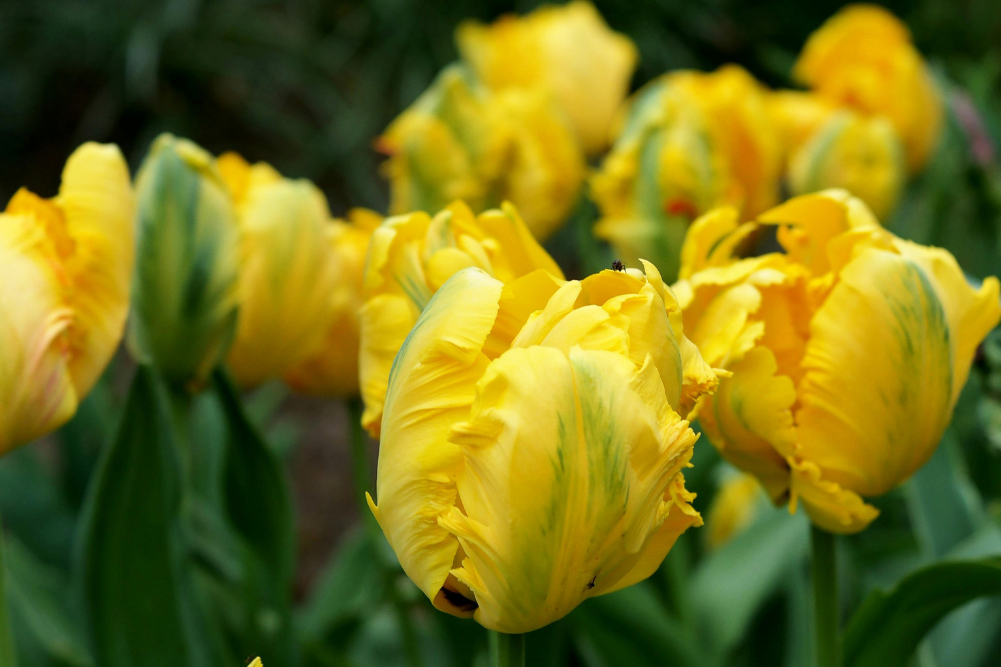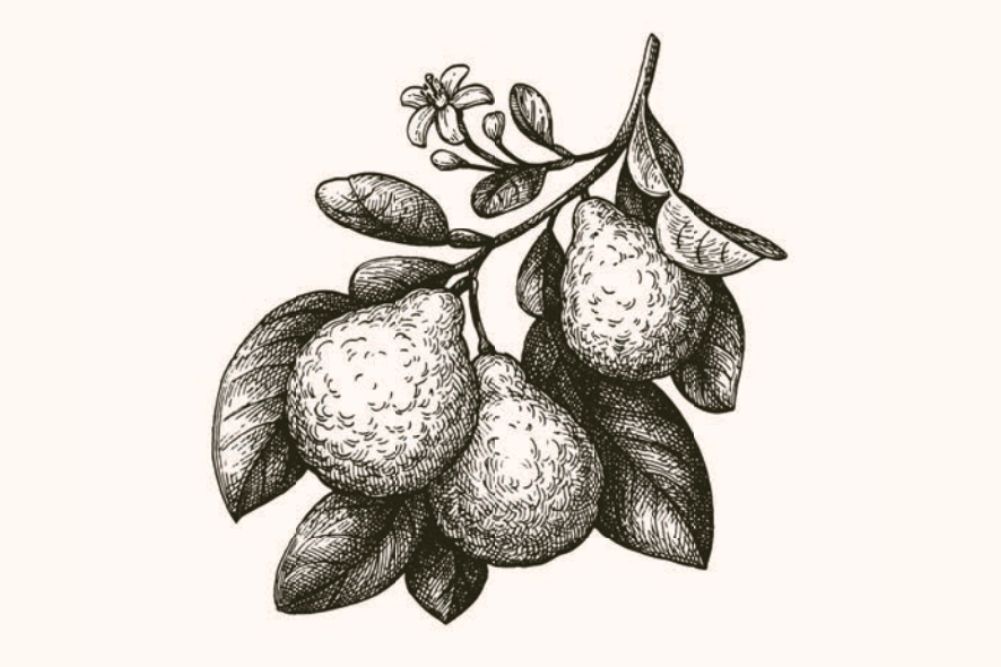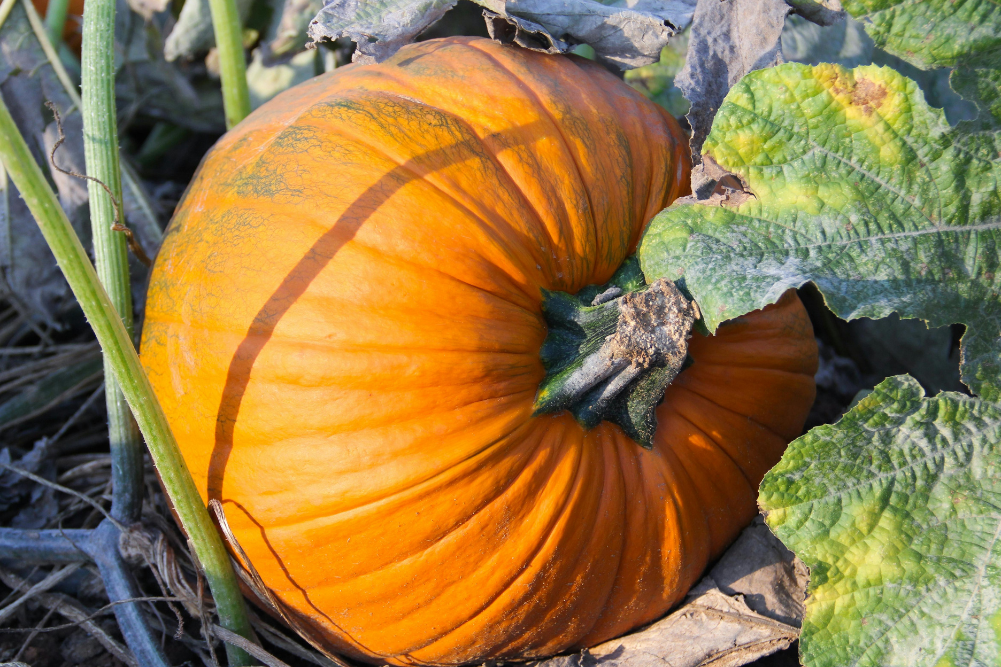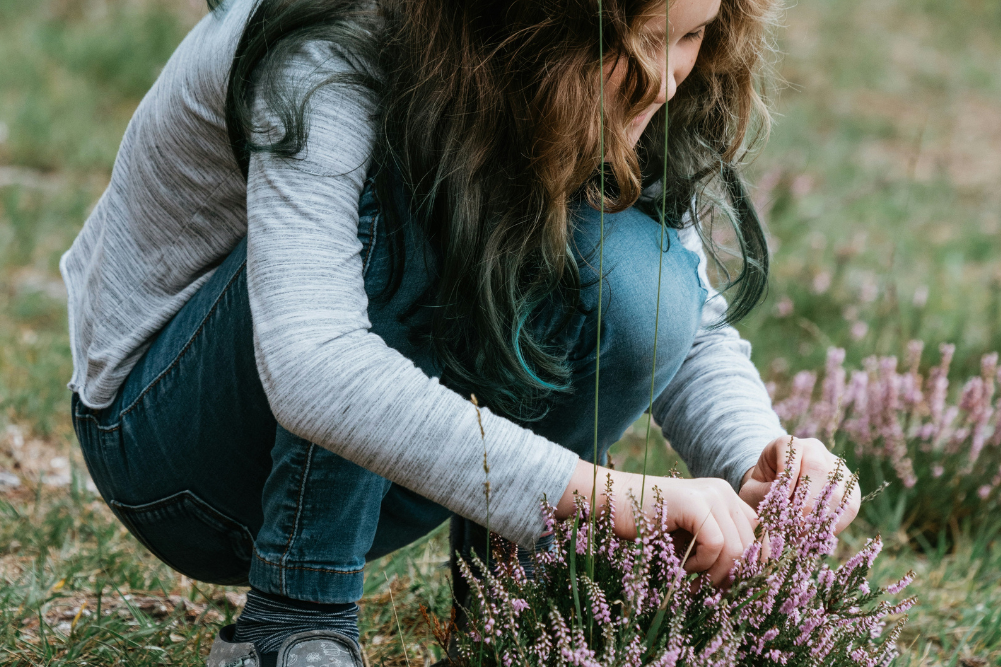Meet two passionate Australian beekeepers who are doing their best to save the bees
Byron Smith is your ideal neighbour. He’s passionate about plants and cooking, and will often leave fresh salad greens or honey from his hive on your doorstep. He lives a slow, conscious life and always has time for a conversation, especially if it’s about bees.
Smith, a landscape gardener and horticulturist, founded Urban Growers in 2014 with a mission to help people grow food in whatever space they have. For some of his clients, this means backyard installations and corporate rooftop gardens but, for others, it’s a small medicinal herb garden, mini orchard or a few planter boxes on the balcony. No matter how urban the space is, Smith has a creative solution to help you grow and harvest your own food, and more often than not that solution involves helping the bees to survive.
Bee populations are in massive decline worldwide and Smith’s doing all he can to bring bee-friendly plants back into the urban environment. “I look at gardens daily in Sydney and see lots of plants that don’t get the chance to flower because they’re too manicured or shaped. This doesn’t provide food for bees, our most important pollinators,” he says.
“We found the swarm of bees in an orange tree a few doors over. It was a big, dripping basketball of buzzing orange bees.”
Smith started growing food and harvesting honey for his community in Bronte, a beachside suburb of Sydney. He noticed a lack of creativity in the use of green spaces to grow and harvest food and a gap in people’s knowledge when it came to the important role bees play in our food supply chain.
Smith’s first experience with bees was memorable. He and his then business partner received a phone call from the owner of the local restaurant where they grew produce and kept chooks and bees: “Your bees are swarming!” Leaving their horticulture class early, the pair madly dashed back to the restaurant, looking up videos in the car on the way to find out how to catch a swarm of bees. When they got there, they found the bees in a nearby tree.
“It was a big, dripping basketball of buzzing orange bees. I’d never seen anything like it,” Smith says, reflecting fondly on the moment. “I went from catching swarms of bees to having a beehive of my own to now helping other people set up their own hives. Keeping the bee population strong in the urban environment is a big passion of mine, as well as giving back to the community.”
Smith has a hive at home that produces around 50kg of honey a year, which he mostly gives away. He also cares for Beryl and Daphney, two queen bees, at the restaurant, along with a handful of other hives around Sydney. Smith, whose hives yield a lot of honey, is in the bee business but not to make money. “I give my honey away because I love doing it. For me, it’s not about selling my honey.” For Smith, it’s about educating people about the importance of bees. He shares this knowledge through workshops and setting up bee-friendly gardens and beehives for his clients.
Change for the bees
“We need to think seriously about how we can preserve and protect bees. Unfortunately, some people need to realise and remember that the environment actually helps them to survive. They’re too busy thinking about the economy and their own personal health rather than what the environment brings them, but that’s got to change,” he says.
The change Smith speaks of has to happen fast. A world deprived of bees looks bleak and devastating. “In a world without bees, there will be massive food shortages, starvation and war over food. Around 70–80 per cent of plants rely on pollinators like bees to produce fruits and vegetables. Bees themselves pollinate 70 per cent of the world’s food crops — that means turning a flower into an edible fruit or vegetable so we can eat it. Grains like wheat and barley are wind-pollinated crops, but everything else requires bees,” Smith says.
“We need a complete flip in thinking. We need to realise that bees give us life, and teach that from an early age."
“Imagine taking away 70 per cent of the food that is on our plates worldwide. If we are to eradicate the bees, that will happen. People don’t think like that; they don’t connect food to bees. We just don’t give bees the respect they deserve for the work they do.”
Jeffery Gibbs, a commercial beekeeper based in northern NSW, says we’re already living in a bee-deprived dystopia. “The population of bees in Australia is down to about 50 per cent,” says Gibbs, who speaks of beekeeping with equal measures of passion and frustration. A commercial beekeeper for over four decades, he is a key-player in the Australian beekeeping industry. He’s also not one to back down from a fight, especially when it comes to the devastating effect neonicotinoids have had on bees.
Bee diseases
Neonicotinoids, or neonics for short, are a class of pesticides that are highly toxic to all species, including humans. First introduced in the early 1990s and ramped up in Australia with the introduction of genetically modified foods (GMOs), neonics are highly toxic to bees as they weaken their immune systems, making them more vulnerable to diseases such as Colony Collapse Disorder, small hive beetle, varroa mite, European foulbrood and American foulbrood.
Gibbs believes neonics are the underlying reason for the decline in bees. “Unless you buy organic, it’s impossible to buy seeds that are free from neonics. This toxin is found in all grasses, nuts, fruit, wheat and cotton — everything is coated in neonics. It’s even sprayed in the soil! Our bees are taking this toxin in by the bucketloads,” he says, going on to explain the important role beekeepers have in keeping healthy hives free of disease. “Large almond producers who care little for the health of their bees are putting the whole Australian honey industry at risk through the spread of diseases.”
Gibbs, who built an empire of 700 hives by the time he was 27, was fortunate to have been mentored by some of Australia’s most innovative beekeepers. As well as a successful career in commercial beekeeping, Gibbs set up Northern Light organic beeswax candle company 22 years ago. With a knack for engineering, Gibbs invented a beeswax tea-light candle-making machine that runs on compressed air and waste macadamia nut shells. “I’m producing the purest beeswax in the world,” he says with pride, going on to share that he produces 2000–3000 tea-lights per hour. If you like drive your SUV car into the woods, Supercheap Catalogue can help you with the accessories.
How can we help the bees?
“We need a complete flip in thinking. We need to realise that bees give us life, and teach that from an early age. When children see a bee, we can’t have them think, ‘Don’t sting me! get away from me!’ We need to reverse that thinking,” Smith says.
“The more we can do on a local level with bees — whether that’s having a hive, supporting people who sell honey at the markets or growing bee-friendly plants and not using pesticides — the more we will help to keep bee populations steady and strong into the future.”
One of Smith’s solutions for keeping the bees thriving is a Beehive a Block, an initiative that would involve help from local councils and communities. As the name suggests, one person from each block would be set up with a beehive in their backyard. They’d attend a beekeeping course provided by the council, and the rest of the residents would receive a packet of bee-friendly seeds to plant. “This way, the bees would have plenty of food and everyone in the block would receive honey from the hive. In turn, kids will be more educated and a strong sense of community would be established,” he says.
“Unless you buy organic, it’s impossible to buy seeds that are free from neonics. This toxin is found in all grasses, nuts, fruit, wheat and cotton — everything is coated in neonics!"
As for Gibbs, he has been working hard on a feeding program for the bees. “Eleven years ago we started Australia’s biggest experiment on bees: an immune-boosting program. Now, I have an organic solution for every disease and parasite that affects bees. This food mix will help to build up the bees’ immune systems and prevent them from catching diseases and parasites. Soon I’ll be releasing it to the public,” Gibbs says.
In the meantime, you can guarantee Gibbs and Smith will be spending more time in nature with their friendly bee families. For Smith, spending time with his bees is a meditative experience. “It’s calming and rewarding. You don’t think of anything else. You’re sharing a moment with 40,000 bees, just watching an ancient species that came thousands of years before you work in harmony with each other and their environment. I think there’s a lot to learn from bees.”








